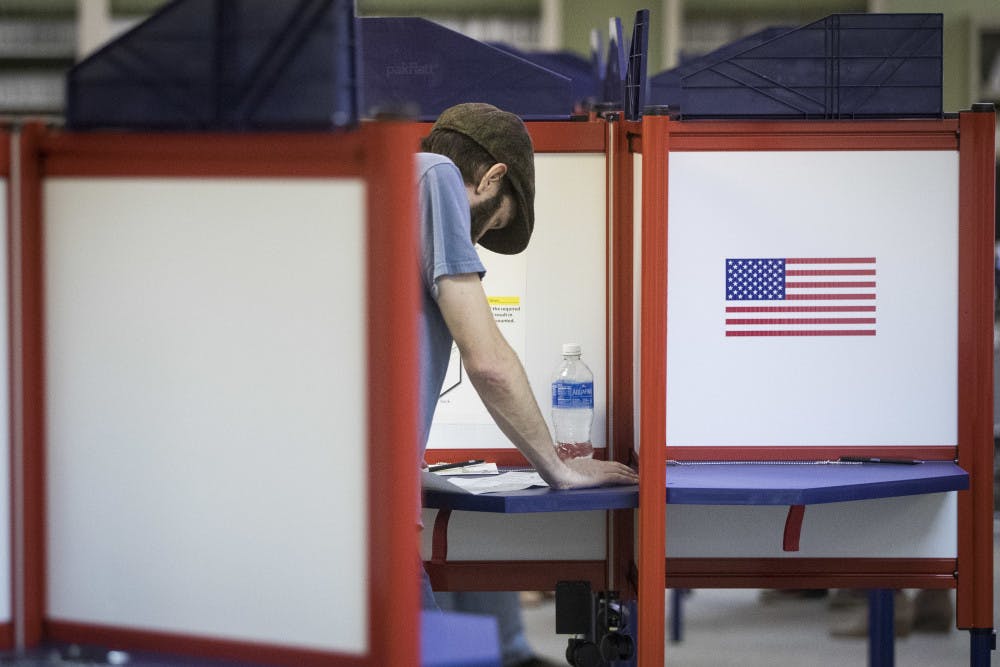Jhody Polk was sentenced to eight years in prison for home invasion and theft in 2007.
Seven years and one law clerk certification later, Polk was released from Lowell Correctional Institution in Marion County with a goal to attend UF’s Levin College of Law.
But the 34-year-old’s status as a felon prevents her from pursuing law, serving in a jury and even voting.
“I get out with all these expectations and hope and a new way of thinking,” she said. “But no matter what I did, I couldn’t get a good job.”
But an amendment on the ballot in November could change that.
The Voting Restoration Amendment will decide if 1.5 million Floridian felons like Polk will get their voting rights restored. The initiative, sponsored by Desmond Meade of Floridians for a Fair Democracy, was approved for the ballot last Tuesday. Sixty percent of Florida voters would need to vote yes on the amendment to make it law.
The initiative would restore the voting rights of Floridians with non-violent felony convictions who have completed their sentences but not for those convicted of murder and sexual assault crimes.
A petition to make the amendment surpassed the 766,200 signature requirement, gathering a total of 806,681 verified signatures, according to the Division of Elections website. The organization collected 19,981 verified signatures from Alachua County.
“Being black and being a felon, you get this negative stereotype,” Polk said. “There was nothing in Florida besides the grassroots volunteers that would make me feel comfortable enough.”
Florida is one of four states — including Virginia, Kentucky and Iowa — to permanently bar former felons from voting. More than 6 million Americans are disenfranchised because of past incarcerations, according to a report by the Brennan Center for Justice at New York University. A quarter of them live in Florida.
Florida offers felons clemency, or the process of petitioning the governor to restore civil rights. However, restoration is not guaranteed.
Desmond Meade, the president of the Florida Rights Restoration Coalition and ex-felon, was unable to vote for his wife when she ran for office in 2016. Since founding the voting restoration movement, he has spoken to the United Nations and U.S. Congress advocating against disenfranchisement. Meade spoke at Pugh Hall in November, according to Alligator archives.
Julie Thaler, a lead organizer in the Say Yes to 2nd Chances petitioning campaign, said the group’s next challenge is making sure amendment supporters register to vote in November. The initiative is a nonpartisan issue, Thaler said. She attributes the petition’s success to its grassroots approach to activism.
“It’s not about politics. It’s about human rights,” she said. “It’s about forgiveness.”
Contact Amanda Rosa at arosa@alligator.org. Follow her on Twitter at @AmandaNicRosa.
A voter reads his ballot at the Hamilton County Board of Elections as early voting begins statewide, Wednesday, Oct. 12, 2016, in Cincinnati.






